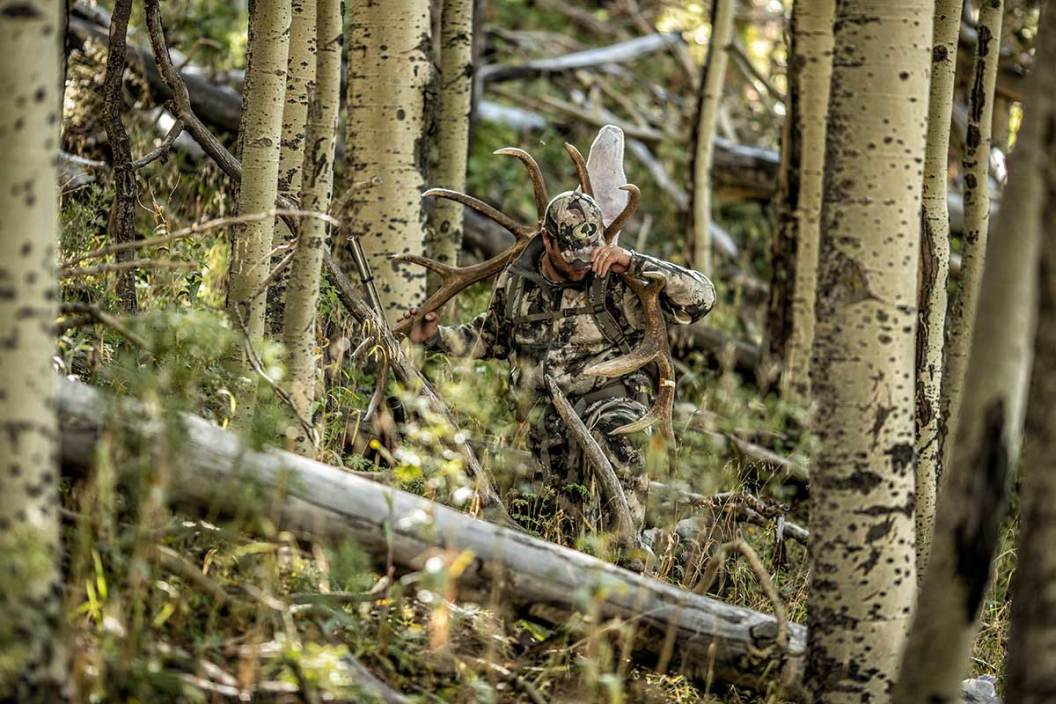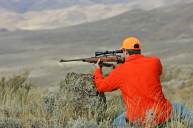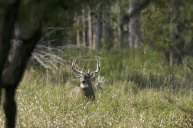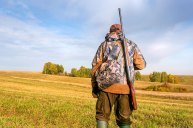Outdoorsmen and women choose to hunt for a lot of different reasons. Some like to know where their meat comes from, have a personal connection with their food, and taste the unique flavor of wild game. Others appreciate the challenge of getting a mature buck within bow range, putting the stalk on a majestic bull elk, or fooling an old Tom with a perfected yelp. And a lot of hunters simply like spending time with loved ones in the outdoors and upholding long-standing traditions. Whatever the reason, there are a lot of health benefits of hunting for both wildlife conservation and the hunters themselves — not the least of which is getting them into shape. Here are some direct ways hunting can help improve your mind, body, and soul.
Improving Heart & Lung Health

Whether you're running and gunning for turkeys, spotting and stalking elk, or hiking in a couple miles to your deer stand, hunting can often require you to hoof it through the great outdoors and really get your heart pumping. Breathing in the fresh air while working hard can be great for both your cardiovascular and respiratory systems. Taxing trips into the high country can help condition your body to deal with high altitude, and just being active in general has been proven to be beneficial for just about every person of any age or health status. Are hunters lazy couch potatoes? Not successful ones, that's for sure.
Building Muscle
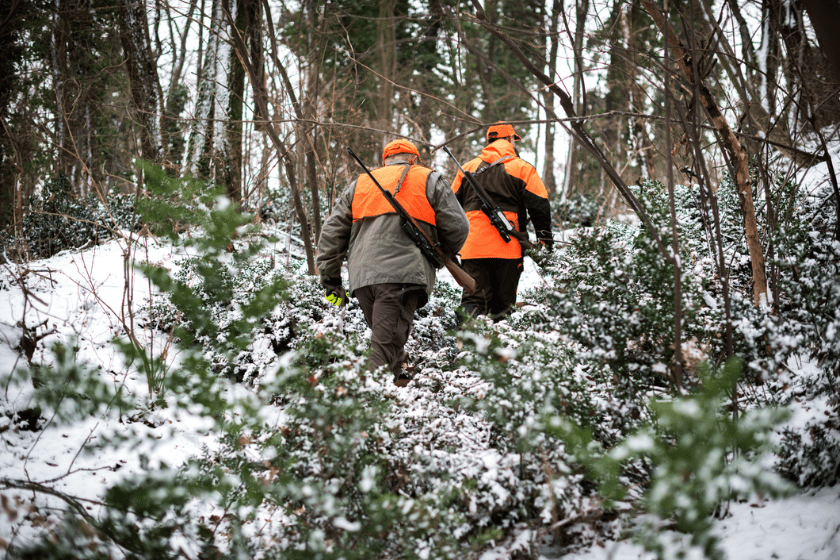
With proper form, consistently shooting your bow in preparation for archery season will engage muscles throughout your body, including your core, back, and shoulders. The more you practice, the stronger you'll get — you'll notice it gets easier to hold your bow at full draw longer, and you might even be able to bump up your draw weight. Lugging treestands into the big woods, climbing up tree steps while weighed down with cold-weather gear, ascending steep summits with a heavy daypack, dragging a bruiser buck to the truck, packing out an old bull from the backcountry — it's all demanding on your body and builds strength over time.
Boosting Endurance
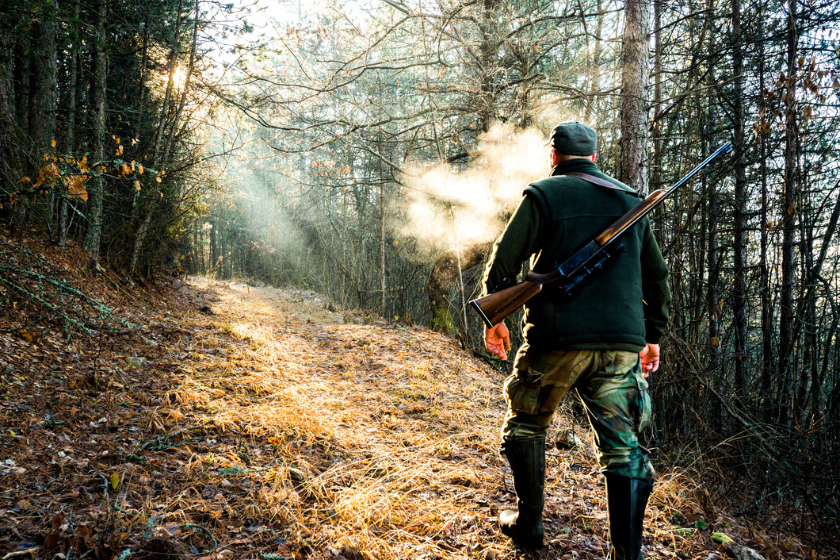
Some types and elements of hunting require short bursts of energy or effort, but others demand long stretches of endurance. Moving in on an animal you glassed from miles away, trekking treacherous goat country for days at a time, packing out hundreds of pounds of meat over the course of several trips — consistent work over an extended period of time just takes a different type of toughness.
Increasing Mental Fitness
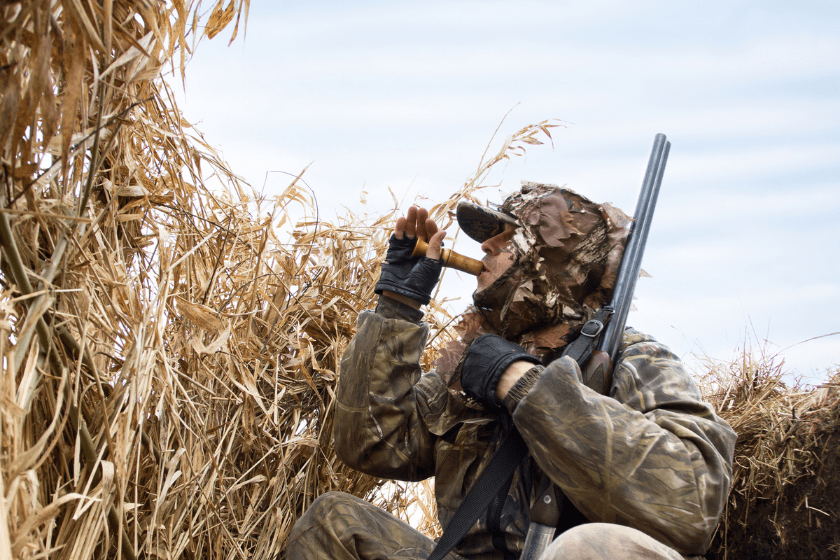
Hunting doesn't just help make you physically tough and strong. It can improve your mental toughness too. Willing yourself to sit motionless in the freezing cold from first light until dark or pushing yourself to make it just 100 yards farther after you've already reached complete exhaustion is as much a mental game as it is a physical one. Overcoming target panic or buck fever and keeping your cool when a bull is bugling just a few yards away isn't easy. Intense, stressful, and nerve-racking situations are common when hunting, and learning how to overcome them is what sets the most successful hunters apart.
How to Prepare
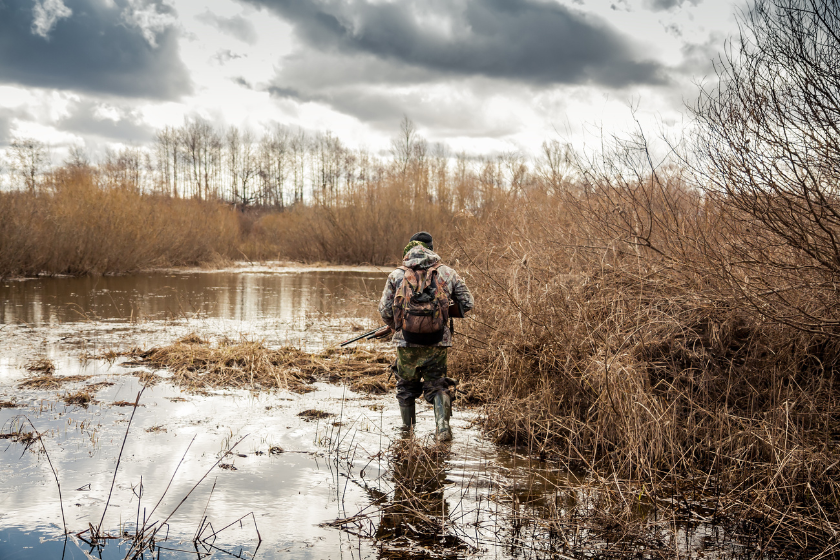
While consistent, hardcore hunting will force you to get into shape to some extent, proactively getting yourself in peak condition beforehand will improve your odds for success, make the hunting experience much more enjoyable. It will also increase the overall health benefits of hunting. Here are our suggestions.
Hit the hiking trail or even the treadmill in the offseason to get your heart rate up and your lungs working. You can gradually increase the time you spend doing this cardio work and add in a weighted pack to simulate the load you'll be hauling and exert more effort. Incorporate "hills" into the workout, whether that's maxing out the incline on your treadmill or actually hiking up a mountain.
Add in some exercises that target the muscles you use when drawing your bow or doing any other movement that demands physical strength. Consistently performing a few weighted moves will help you increase your draw weight faster and make pulling back that bow—and holding steady—a breeze.
Don't forget the mental exercises. While there's nothing better than actually gaining experience doing the thing that intimidates you, you can take a few steps to prevent freezing up or fumbling in the field. Visualize different hunting scenarios and play them out in your head. Practice as much as it takes to make going through all the necessary steps feel like second nature. And learn from any mistakes you make by carefully considering how to correct them in the future.
Finally, start early. If you have an elk hunt planned for September, don't wait until August to start preparing your body for the rigors of the backcountry. As soon as one season ends, begin working towards the next one. Set goals for yourself so the task isn't so daunting. Your body will thank you come hunting season.
